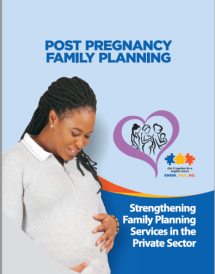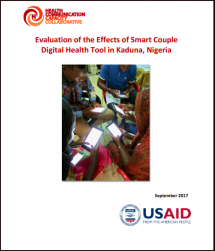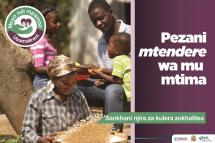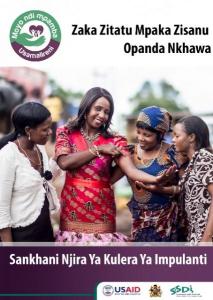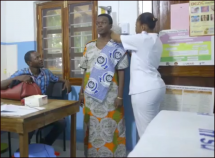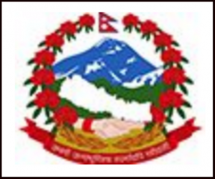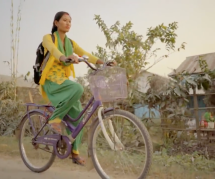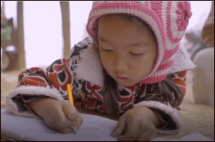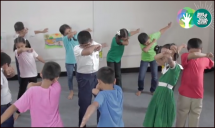Post Pregnancy Family Planning Project
The Post Pregnancy Family Planning is a four-year Project (2017-2021) funded by the Bill and Melinda Gates Foundation and Merck for Mothers aimed at providing post-pregnancy clients with the information and services they require to commence the use of family planning services. The Project is implemented in the private sector which provides services to sixty-five per cent of its citizens.
The Post pregnancy period is the period of pregnancy through one-year post-pregnancy, it includes miscarriages and any pregnancy that does not result in a live birth. Project interventions are integrated along the Maternal and Child Health (MCH) continuum of care services; antenatal, delivery, immunization, postnatal and any interaction the post-pregnancy client has with the health system.
In-clinic mobilization is the focus of demand generation activities targeting a high number of women during antenatal and immunization clinics with social mobilization materials specifically developed to address the needs of the post-pregnancy woman and her partner.
The demand generation approaches
- Increase demand for family planning services among post-pregnant women both in the clinic when they are attending MNCH services and in the communities
- Reduce ideational barriers linked to knowledge, reduce misperception, spousal communication, self-efficacy, risk perception for post-pregnancy women and families
- Address the low perception of quality family planning services in the private sector.
Source: Johns Hopkins Center for Communication Programs
Date of Publication: November 21, 2020
SIMILIAR RESOURCES
Tools
Examples
- Factors Impacting Use of Health Services by First-time/Young parents: A Formative Research Toolkit
- “Because my Husband and I Have Never Had a Baby Before…” Results and Lessons from Interventions with First-Time Parents in Madagascar, Mozambique, and Nigeria
- Lessons Learned from an Integrated Approach for Reaching First-time Young Parents in Nigeria
- Reaching the Youngest Moms and Dads: A Socio-Ecological View of Actors and Factors Influencing First-time Young Parents’ Use of Sexual and Reproductive Health Services in Madagascar
- First Time Parents
- Training Tools: Providing Family Planning and Reproductive Health to Young Married Women and First-Time Parents in West Africa
- Scaling-Up First-Time and Young Parent Access to Postpartum Family Planning: Could Small Shifts Change the Game?
- Evidence to Action (E2A) Project's First-Time Parent Framework
- Beyond the ABCs of FTPs: A Deep Dive into Emerging Considerations for First Time Parent Programs
- Connect: Increasing Use of Pospartum Family Planning by First-Time Parents

